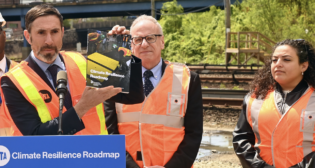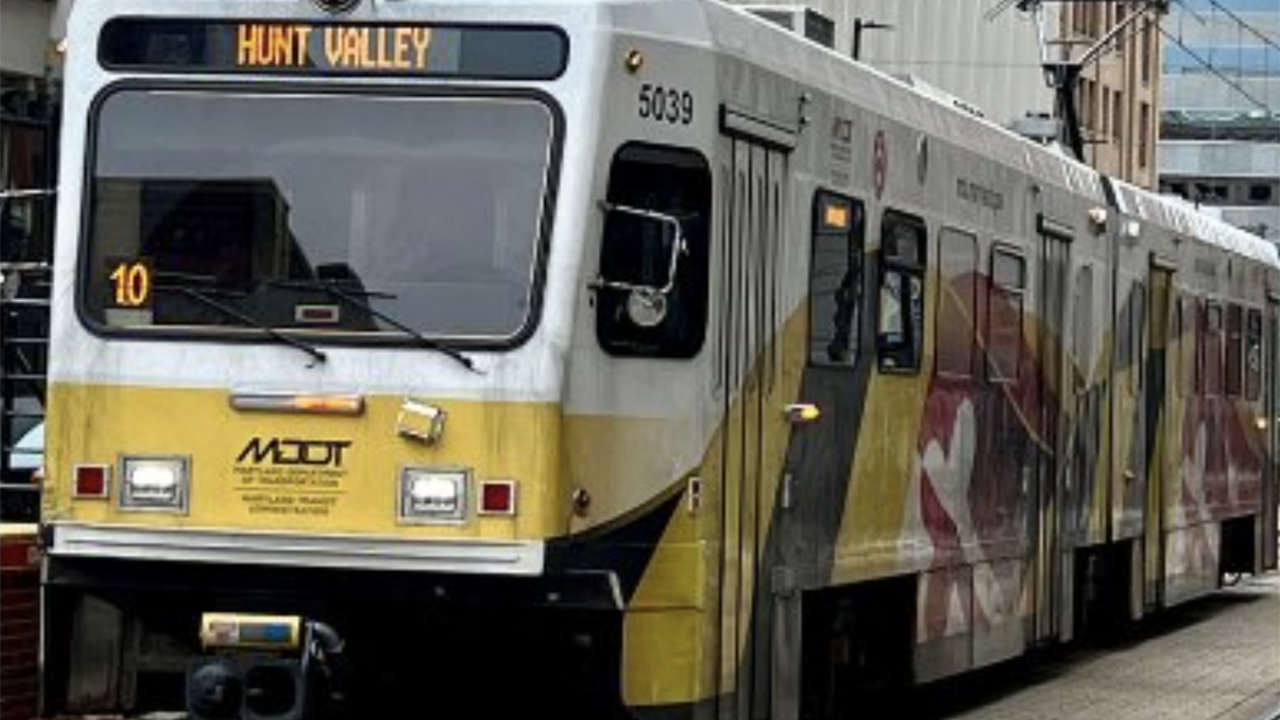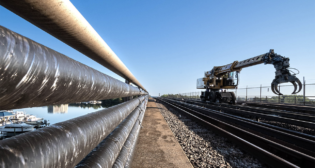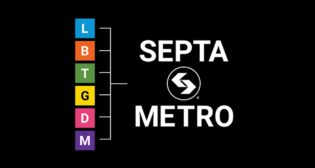
FTA Awards $631MM for Rail Vehicle Replacement
Written by Marybeth Luczak, Executive Editor
“This federal funding is vital to enhancing safety, accessibility and performance on MTA’s light rail,” Maryland Transportation Secretary Paul J. Wiedefeld said. “By having a more reliable light rail fleet with low-floor cars, MTA will deliver premiere customer service to the greater Baltimore region.” (MDOT MTA Photograph)
Three transit agencies in three states have been selected to share nearly $631 million in grants to replace a total of 300 aging passenger railcars and support American manufacturing, the Federal Transit Administration (FTA) reported Feb. 21.
Chicago’s Metra (Commuter Rail Division of the Regional Transportation Authority), Maryland Department of Transportation Maryland Transit Administration (MDOT MTA), and Philadelphia’s Southeastern Pennsylvania Transportation Authority (SEPTA) will receive funding through FTA’s Rail Vehicle Replacement Program. They are the second set of agencies to be selected for the program, which was created to “improve safety, service, and customer experience on subways, commuter rail, and light rail systems.” The first set included Sacramento Regional Transit District, South Florida Regional Transportation Authority, Chicago Transit Authority, Bi-State Development Agency, Greater Cleveland Regional Transit Authority, and Utah Transit Authority.
The Rail Vehicle Replacement Program is funded by the Bipartisan Infrastructure Law (also known as the Infrastructure Investment and Jobs Act), which will invest a total of $1.5 billion in the program through FY2026.
According to FTA, one-third of subway and commuter rail vehicles in the United States are more than 25 years old, and they contribute to delays, increased maintenance costs and customer dissatisfaction, besides lacking amenities, such as digital signage and audio tools that improve the riding experience and access. They may also lack direct access for people with disabilities.
All railcars purchased with federal funding, including through this program, must comply with the Buy America Act, FTA reported. At least 70% of the railcar must be made in the U.S. and final assembly must be done in the U.S.
Metra will receive $100 million to buy 50 multi-levels that feature new passenger safety, accessibility, and rider comfort amenities to replace older railcars that have been in service for more than 40 years, FTA said.
MDOT MTA will receive approximately $214 million to buy 52 new low-floor light rail vehicles to replace older ABB Traction vehicles that have been in service for more than 25 years. The state of Maryland is providing $90 million in matching funds and allocating $127.6 million in federal formula funds to the project to complement the federal grant.
SEPTA will receive approximately $317 million to buy up to 200 new railcars to replace older M4 Adtranz-built cars that have been in service for nearly 25 years, operating along the Market Frankford Line, the most heavily used line in its system. According to the current capital budget proposal, SEPTA was planning to spend $950 million to replace the Market-Frankford Line vehicles through fiscal year 2031.
FTA opened the application process for the Rail Vehicle Replacement Program in October and received nearly $1.97 billion in funding requests.
“Newer, better railcars will mean a safer, more reliable, more accessible transportation future for the people of these communities,” FTA Administrator Nuria Fernandez said. “These cars also represent hundreds of jobs in American factories, building the next generation of American transit. We are proud to select these projects to improve passenger rail service for riders across the nation.”
“This federal funding is vital to enhancing safety, accessibility and performance on MTA’s light rail,” Maryland Transportation Secretary Paul J. Wiedefeld said. “By having a more reliable light rail fleet with low-floor cars, MTA will deliver premiere customer service to the greater Baltimore region.”



